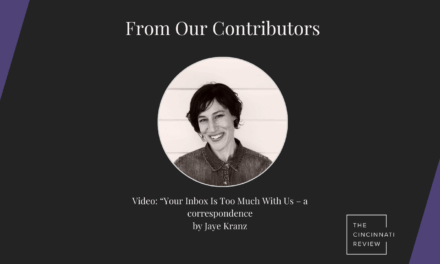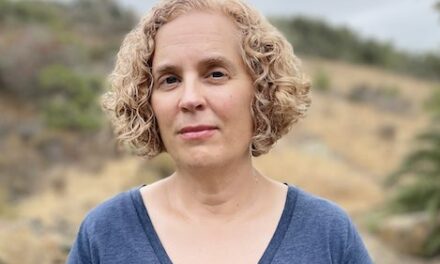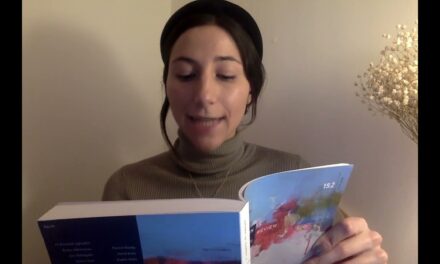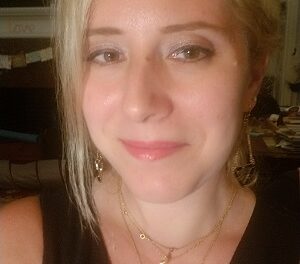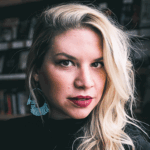What do we do with memory? As far as our writers are concerned, they certainly aren’t going to take contributor Todd Hearon’s comic advice: “Forget it.” Instead, these 13.2 contributors’ poems explore how memory connects us with the people we’ve lost and with former versions of ourselves, trapping us as well as 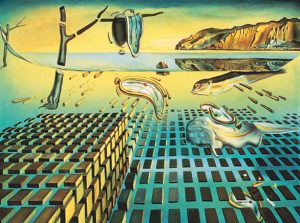 giving us solace. In Chowdhury’s poem, life and memory are cyclical, the joy of children’s “scattered laughter” inextricably tied to the knowledge that “I was born into my grandfather’s death.” In Christiansen’s poem, the memory of her grandmother inspires a meditation on aging and longing, a “kestrel . . . chitter[ing] for her fledglings” who will not return. Hearon brings us full circle, from memory as poetic subject to memory as poetic form, reminding us how powerful rhyme and song can be, how they make memories that never seem to fade.
giving us solace. In Chowdhury’s poem, life and memory are cyclical, the joy of children’s “scattered laughter” inextricably tied to the knowledge that “I was born into my grandfather’s death.” In Christiansen’s poem, the memory of her grandmother inspires a meditation on aging and longing, a “kestrel . . . chitter[ing] for her fledglings” who will not return. Hearon brings us full circle, from memory as poetic subject to memory as poetic form, reminding us how powerful rhyme and song can be, how they make memories that never seem to fade.
Shayok Misha Chowdhury on “Creation Myth: Morning”: These days, I measure my time in funerals. The old ones are passing out of this world. Some young ones too. In my language, when someone dies we say they become a “picture.” My grandfather has always been a picture to me, hanging black-and-white against the walls of our family homestead at P544 Raja Basanta Roy Road, Kolkata 700029. I find myself taking comfort in that inevitable alchemy: we will all be pictures one day. This poem is a part of an ongoing series of creation myths. I mean myth not as a synonym for “lie” but as a formative truth: how we came to be. It’s a question I imagine I will never be finished with. How is that I am, that we are? I rarely write formal poems. But the relentless repetition of the pantoum allowed me, in this instance, to return obsessively to words that have always haunted me, that refuse to leave me alone. Dead. Mourning. Mother.
April Christiansen on “Dysphagia”: This poem is from a manuscript that explores themes of growing up in Arizona, the complicated relationships of family and an adult perspective on how people do and do not communicate. While the family is placed in the middle of the beautiful and stark Sonoran Desert, many of the poems deal with the places we have left the desert for and my imagined experience of those who both remained and departed. I am interested in the tension between the tangible and the intangible and how those things are experienced in tandem. This particular poem is inspired by my grandmother and imagines her thoughts and experiences near the end of her life.
Todd Hearon: Mnemosyne—mother of the muses, speaker of this poem—is the goddess of memory. That said, I have no memory of what inspired this poem or how it was composed. I think it grew out of a fragment—advice that a businessman-father might give to his son:
ON MEMORY
Forget it. There’s no future in it.
I do remember that the poem came quickly and that it surprised me with its sonnet form. I also remember being surprised during the writing that it came out on just two rhymes. But that shouldn’t surprise, rhyme being one of the best forms of mnemonics.


